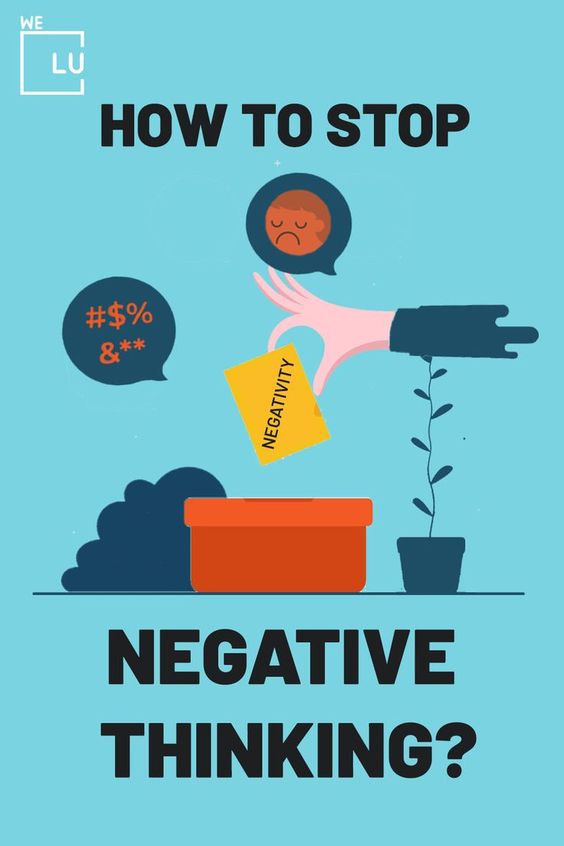What is EFT Tapping?
EFT stands for Emotional Freedom Techniques. EFT is a practical self-help method that involves using the fingers to gently tap on the body’s acupuncture points along the meridian lines of Chinese medicine. It is often referred to as ‘EFT Tapping’ or simply as ‘Tapping’. or psychological acupressure. EFT incorporates theories from holistic therapies such as acupressure, energy medicine, and neuro-linguistic programming. One can use EFT tapping for anxiety, PTSD, weight loss, pain, stress, and many other issues.
EFT Tapping helps the person tune in to the negative patterns that form around our uncomfortable feelings, thoughts, or troubling memories. ‘Tapping’ on the correct pressure points while bringing the emotions or thoughts into consciousness. The aim is to find relaxation and relief and promote healing around the physical or emotional issues that affect the individual.
According to the National Center for Biotechnology Information [1], Emotional Freedom Technique (EFT) is an evidence-based self-help therapeutic method, and over 100 studies demonstrate its efficacy. However, information about the physiological effects of EFT is limited. It is a novel therapy that combines both cognitive and somatic elements. When measured against the American Psychological Association’s Division 12 Task Force on Empirically Validated Treatments, EFT is found to be an “evidence-based” practice for anxiety, depression, phobias, and posttraumatic stress disorder (PTSD).

Get Your Life Back
Find Hope & Recovery. Get Safe Comfortable Detox, Addiction Rehab & Dual Diagnosis High-Quality Care.
Hotline(844) 597-1011History Behind Tapping
EFT is a branch of comprehensive energy psychology that has evolved since the 1970s from various sciences. These include traditional Chinese medicine (acupuncture), Dolores Krieger’s and Doris Kunz’s energy work, applied and behavioral kinesiology, thought field therapy, meridian-based psychology, neurolinguistic programming, and energy medicine to name but a few. The concepts defined as EFT have been elucidated by Gary Craig since the 1990s and are described in his highly detailed online tutorial. Craig (2016) encourages those new to EFT to explore Optimal EFT as a more evolved spiritual iteration of the EFT process. [2]
Philosophy Behind Tapping
Disciplines such as yoga, acupuncture, massage, and tai chi, rely on a body-mind connection. Evidence shows that these interventions can relieve stress, anxiety, depression, and other mental health disorders. EFT tapping falls into the category of body-centered therapies.
Tapping draws on the ancient Chinese practice of acupuncture, which teaches that the body’s energy travels along specific pathways. Certain points on these pathways are stimulated to improve the flow of energy. The stimulation is done by inserting very thin needles (acupuncture) or applying pressure ( acupressure).
Studies show that acupuncture is effective for some conditions. Some scientists believe that it works because it stimulates the central nervous system and causes the body to release helpful chemicals. EFT tapping stimulates acupoints by touch rather than needles, similar to acupressure.
Does EFT Tapping Work?
There have been well over 60 studies in peer-reviewed journals establishing a 98% efficacy rate for EFT. Many studies are listed on the Association for Comprehensive Energy Psychology’s (2014) website, which provides a comprehensive research review. The diversity of psychological problems successfully treated include but is not limited to, anxiety (Gaesser, 2014), addictions (Church & Brooks, 2014), posttraumatic stress disorder (PTSD), and both individual and large-scale trauma events (Boath, Stewart, & Rolling, 2014) [3].
Western medical practitioners may express skepticism as this technique lies so far outside the boundaries of allopathic paradigms of health and healing. This skepticism remains despite the proliferation of double-blind, randomized controlled studies, the gold standard of research investigation demonstrating a high evidence base for EFT.
Science Behind Tapping

Emotional Freedom Techniques is based on the premise that the cause of all emotional and physical dis-ease is a disruption in the body’s energy system. This presumes that a distressing memory of an event is not the trigger of the individual’s pain. Still, instead, the distressing memory becomes a disruption in the body’s energy system, and the disruption causes the symptom or condition.
This explains why a unitary technique, EFT, can be applied to such a wide array of problems since all the problems result from energy disruption in the system, and the intervention is designed to release those disruptions.
According to allopathic models, the stress response generates systemic inflammation by activating the hypothalamus-pituitary-adrenal axis In normal situations, this response subsides once the survival episode is completed. In many individuals, however, the stress response continues to start, releasing even more stress hormones, such as cortisol, norepinephrine, and adrenaline, into the system.
This repeated stimulation produces increased activation of the amygdala, hippocampus, and other brain areas associated with fear and distress. Unless these feedback loops are interrupted, the stress response, with its attendant physical and psychological consequences, can often continue unimpeded, resulting in chronic inflammatory conditions [4].
EFT works on cognitive and energetic levels simultaneously. While holding the troubling symptom or condition in one’s conscious awareness and concurrently tapping on selected acupoints, a mental shift and an energetic release are produced.
Get Help. Get Better. Get Your Life Back.
Searching for Accredited Drug and Alcohol Rehab Centers Near You?
Even if you have failed previously and relapsed, or are in the middle of a difficult crisis, we stand ready to support you. Our trusted behavioral health specialists will not give up on you. When you feel ready or just want someone to speak to about therapy alternatives to change your life call us. Even if we cannot assist you, we will lead you to wherever you can get support. There is no obligation. Call our hotline today.
(844) 597-1011EFT Tapping Technique
What are the actual EFT tapping techniques you’ll need to learn to reap the associated benefits? Some EFT practitioners teach that there are seven basic steps in the EFT tapping process, according to the EFT “recipe” created by Gary Craig. Others summarize the process in five steps.
The basic EFT tapping steps are as follows:
Identifying the issue — Start naming the specific problem or emotion you want to target with EFT before tapping. The goal is to focus on only one issue at a time for the most effectiveness.
Creating a reminder phrase — You create a short phrase that helps you to refer to the problem or memory in a specific way by giving it a title. This helps you stay focused on the memory or current problem during the rest of the process.
Rating the issue — Determine on an “intensity scale” ranging from 1–10 how significant the problem is to you (1 is the least significant and ten the most).
Setting up your affirmation — Create a self-affirming phrase that helps you feel powerful against the issue. The basic structure of positive affirmations is “Even though I feel X (fill in the problem or emotion you’re dealing with), I deeply and completely accept myself.” While you repeat your affirmation, you start by tapping on your hand, specifically on the fleshy part on the outer side of your palm under your pinky finger.
Performing the tapping sequence — During a tapping sequence, you tap your finger over eight key meridian points. Use two fingers, usually the middle and index finger, and apply constant, gentle, yet firm taps. Keep speaking out loud while you’re tapping, repeating positive phrases to keep your attention focused. Tapping points to include (in this order) are the top of the eyebrows, side of the eyes, under the eyes, under the nose, under the chin, under the collarbone, under the arm, and top of the head.
Tuning in for re-rating — Tune in to how you feel about the tapping session, rating the problem on a scale from 1–10.
Repeating the process— If you still feel stuck, find a new positive affirmation and repeat the process.
EFT Tapping Benefits
There are many proposed benefits of EFT tapping, including:
- Improved mood
- Reduced stress and levels of the stress hormone cortisol
- Increased weight loss
- Decreased anxiety or depression
- Improved symptoms of chronic pain
- Reduced headache frequency and intensity
First-class Facilities & Amenities
World-class High-Quality Addiction & Mental Health Rehabilitation Treatment
Rehab Centers TourRenowned Addiction Centers. Serene Private Facilities. Inpatient rehab programs vary.
Addiction Helpline(844) 597-1011Proven recovery success experience, backed by a Team w/ History of:
15+
Years of Unified Experience
100s
5-Star Reviews Across Our Centers
10K
Recovery Success Stories Across Our Network
- Low Patient to Therapist Ratio
- Onsite Medical Detox Center
- Comprehensive Dual-Diagnosis Treatment
- Complimentary Family & Alumni Programs
- Coaching, Recovery & Personal Development Events
Tapping for Negative Thoughts
With EFT tapping, we start by identifying what the problem is. We acknowledge how we feel and bring attention to the intensity, location, and sensation we are experiencing in our bodies. As we apply the tapping action using light pressure with our fingertips on specific meridian points on our face and body, a neurotransmitter is sent to the brain. It is when the negative thoughts and emotional charges get released.
EFT Tapping Anxiety
EFT has been extensively investigated for anxiety and depression. In the first large-scale study of 5000 patients seeking treatment for anxiety across 11 clinics over 5.5 years, patients received either traditional anxiety treatment in the form of cognitive-behavioral therapy (CBT), with medication if needed, or acupoint tapping with no medication. An improvement was found in 90% of patients who received acupoint tapping therapy compared to 63% of the CBT participants. Only three acupoint tapping sessions were needed before an individual’s anxiety was reduced, while an average of 15 was needed for CBT to show results. Complete relief of symptoms was seen in 76% of people in the acupoint taping group compared with 51% of people in the CBT group [5].
EFT Tapping Depression
The health care workers’ study also found a significant reduction in depression after EFT. EFT was more efficacious than physical interventions such as diaphragmatic breathing and psychological interventions such as supportive interviews. A randomized controlled trial with a population of 59 veterans successfully treated for PTSD also identified a significant reduction in depressive symptoms after six 1-hour EFT sessions.

More recent research comparing EFT to CBT for ten patients diagnosed with major depressive disorder found after 8 weeks of group treatment (16 hours), both interventions produced significant reductions in depressive symptoms. The CBT group indicated a significant reduction postintervention, but this was not maintained over time. The EFT group, however, showed a delayed effect of significant reductions in symptoms at 3- and 6-month follow-ups [6].
World-class, Accredited, 5-Star Reviewed, Effective Addiction & Mental Health Programs. Complete Behavioral Health Inpatient Rehab, Detox plus Co-occuring Disorders Therapy.
CALL(844) 597-1011End the Addiction Pain. End the Emotional Rollercoaster. Get Your Life Back. Start Drug, Alcohol & Dual Diagnosis Mental Health Treatment Now. Get Free No-obligation Guidance by Substance Abuse Specialists Who Understand Addiction & Mental Health Recovery & Know How to Help.
Dual Diagnosis Treatment Programs
Tapping for negative thoughts and addictions can be complicated. Too often, people want to “tap for addictions” as if the substance itself is the problem. That is the problem with much of the therapy that is wrapped around addiction. It is focused on eliminating the substance instead of dealing with the underlying issues.
In fact, for the person struggling with drugs or alcohol, the drugs or the alcohol is often their solution to the problem, not the problem itself. But when we are “tapping for negative thoughts and addictions,” we focus on the underlying traumas and anxieties rather than the substance itself. And in doing so, we can get amazing results with a bit of patience and understanding.
Many individuals struggling with substance use disorder also have other underlying mental health conditions. When someone is diagnosed with other disorders along with addiction, it is referred to as dual diagnosis or co-occurring disorders. Co-occurring disorders with addiction must be treated simultaneously. If the underlying condition leads to substance abuse and is left untreated, the person will return to drugs or alcohol because the original trigger was not handled.
Finding success in sobriety can be more difficult for those with co-occurring mental health and addiction problems. But the right therapies can help get them on that path. EFT tapping provides the skills and methods to sustain long-term recovery.
We Level Up uses individualized treatment plans for each client to ensure they can find success in recovery. We know there is no one-size-fits-all recovery method. Treatment plans consider the substance that was abused, co-occurring disorders, past traumas, past treatments, and future planning that may be needed.
We Level Up dual diagnosis treatment centers have medically-assisted detox programs, medication-assisted treatment (MAT), inpatient treatment, and aftercare planning programs for those struggling with substance use disorder and mental health problems. If you or a loved one are struggling with addiction, call our 24/7 admissions team.

Experience Transformative Recovery at We Level Up Treatment Centers.
See our authentic success stories. Get inspired. Get the help you deserve.
Start a New Life
Begin with a free call to an addiction & behavioral health treatment advisor. Learn more about our dual-diagnosis programs. The We Level Up Treatment Center Network delivers recovery programs that vary by each treatment facility. Call to learn more.
- Personalized Care
- Caring Accountable Staff
- World-class Amenities
- Licensed & Accredited
- Renowned w/ 100s 5-Star Reviews
We’ll Call You


